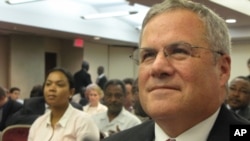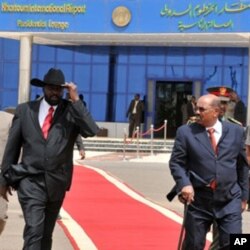The chairman of Sudan’s referendum commission said U.S special envoy Scott Gration is helping his organization resolve outstanding issues leading up to the scheduled January 9 referendum in the semi-autonomous south.
Professor Mohamed Ibrahim Khalil, who was also the first dean of law at the University of Khartoum, said Gration, a retired Air Force officer, has demonstrated Washington’s commitment in ensuring the success January referendum as agreed to in the 2005 Comprehensive Peace Agreement (CPA).
“General Gration is interested we keep in contact. He wants to know what is going on [and] I tell him what is going on. If there are any problems, I tell him. He has leverage [and] he has very good connections with everybody in the Sudan, [both] north and south, and he has been very helpful and cooperative,” he said.
This came after U.S. Secretary of State Hillary Clinton reaffirmed with Sudan’s Vice President Ali Osman Taha about the need to hold a credible and transparent vote.
Khalil has been holding a series of meetings with the U.S special envoy to find ways of addressing his organization’s challenges in the run up to the referendum.
Some south Sudan-based civil society groups have questioned why Washington has so far failed to keep a pledge of about $60 million to help fund activities of the referendum commission.
Khalil said the U.S. envoy has been very helpful as the referendum commission prepares for the next year’s vote.
“I have not raised an issue about funding because, when we were talking about other problems, we were in the process of finalizing the budget. Now, the budget is finalized and all parties who promised to make commitments have made definite commitments, and I am assured that we will get funding in a timely manner,” Khalil said.
He, however, declined to detail the role Gration will play in his organization’s preparations.
Khalil praised the U.S envoy’s role in resolving the sharp disagreement between the ruling National Congress Party (NCP) and the Sudan People’s Liberation Movement (SPLM) over the secretary-general position in the referendum commission.
“We had some problems about the secretary-general and he was extremely interested. He talked to various parties and then we got over that problem. There is no such thing as delineating areas where General Gration can help and areas where he cannot help,” said Khalil.

